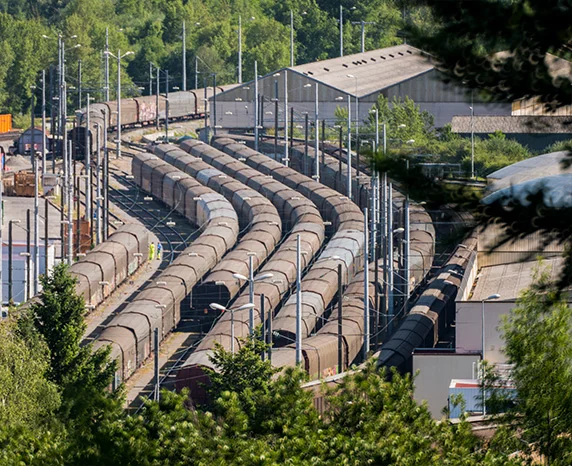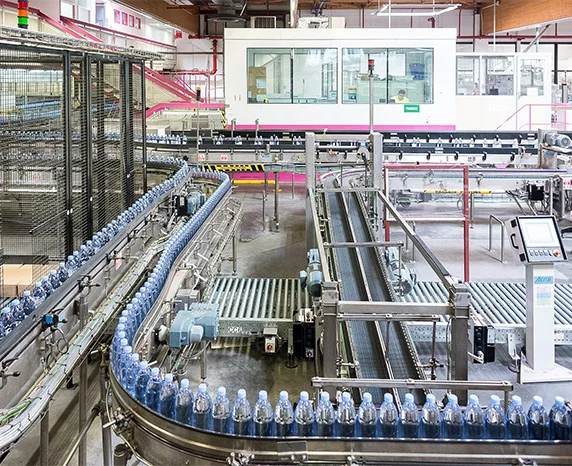Climate impact
We strive to operate sustainably by working to reduce our carbon footprint at every stage of our bottle life cycle from the materials we use, to production, bottling, transportation and recycling.
We strive to operate sustainably by working to reduce our carbon footprint at every stage of our bottle life cycle from the materials we use, to production, bottling, transportation and recycling.
evian® is proud of its record of carbon neutral certification to the international standard PAS 2060 by the Carbon Trust,. This certification required continuously measuring and reducing our carbon emissions at each stage of our bottle’s life cycle: from the materials we used, to production, transportation and recycling. The emissions that remained were then offset through our work with Livelihood Funds, which planted 130 million trees. Since 2008, we reduced our energy consumption by 25% and since 2017, Carbon Trust has certified evian®’s products in the United States and Canada, as well as certifying the evian® bottling site in France as carbon neutral.
Since 2020, Carbon Trust has certified evian® globally as carbon neutral. When evian®’s current Carbon Trust certification for the United States and Canada expires in May 2023, evian® will not seek global recertification. All evian® bottles bearing the Carbon Trust logo have been produced during a period with « carbon neutral » certification by the Carbon Trust. However it may be possible that some of the labels still appear on products in the market after this date.

We are continuously optimizing to lessen our environmental impact by increasing efficiency whenever possible. For example, knowing that train transportation carbon footprint is 10x smaller than trucks in France, we transport about 90% of our bottles from our factory to our warehouses by train. Another initiative is that our logistics team is equipped with a carbon calculator to help incorporate carbon impact into decision making.

Considering Packaging & End of life, recycled PET has a 30% lower carbon emissions compared to virgin PET (15% when considering product full life cycle).
In complement to advocate for a circular model, evian aims to use only rPET to produce its bottles by 2025. Currently, we have an average of 44% rPET* across our range of bottles.
To learn more go to: Packaging & Recycling | evian® Recycled PET Bottle
*excludes label and cap
What makes our bottling site so unique? It runs on 100% renewable energy generated from hydropower and biogas:
Hydropower is electrical energy (hydroelectricity) that is produced by using water to move turbines that power a generator to produce electricity.
Biogas is composed of methane produced by the breakdown of organic matter, such as agricultural waste, manure, plant material, sewage, green waste or food waste.
Our factory is more than a place for bottling water, it’s also tasked with sustaining a long-term future for the circular economy. This future is being constructed at our factory, the place where all of our products and innovations were created, and where tomorrow’s will be developed to meet its economic, social, and environmental challenges going forward.
Our bottle site is an example of best-in-class energy and environmental management systems. Between 2012 and 2022, the energy consumption per bottle decreased by more than 25%. This reduction has been enabled by several projects, managed by a dedicated team working on a daily basis to monitor and continuously improve energy consumptions.
How we are working to reduce the energy consumption:
Our bottling site is also entirely powered by renewable energy.